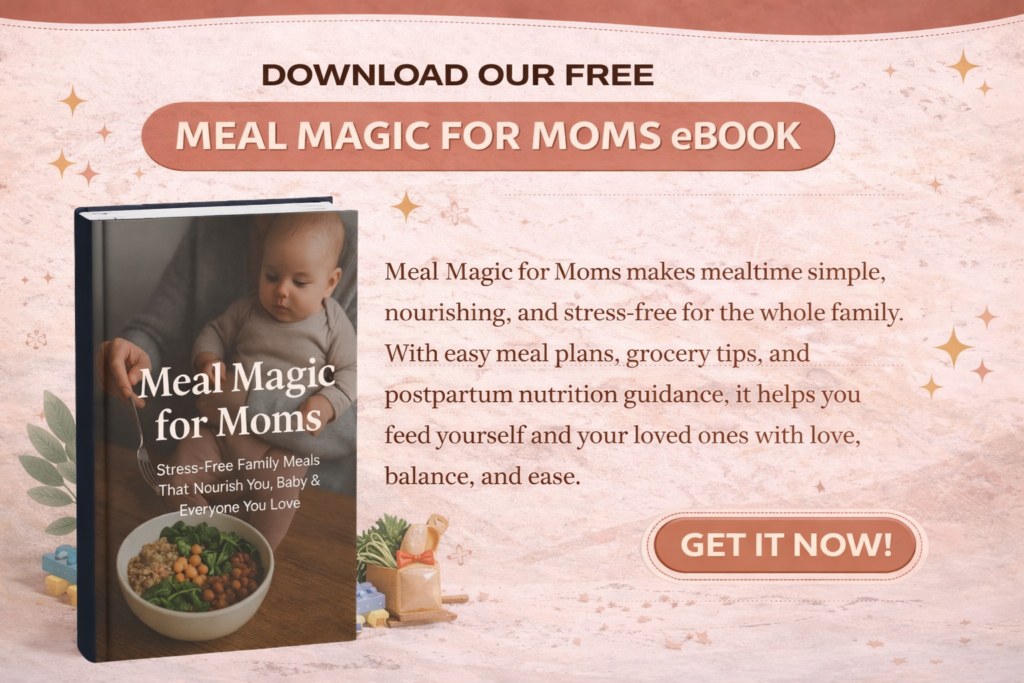What Every Mom Should Know Before and After Birth
Balancing pregnancy, birth, and returning to work is one of the most challenging transitions a woman can experience. The changes to your body, mind, and daily life are profound, affecting everything from your physical recovery to your emotional well-being. Whether you deliver vaginally or via C-section, your journey into motherhood deserves the same care, planning, and support as any major life change.
This blog will help you understand the statistics, the pathophysiology behind postpartum changes, practical care plans for recovery, and support options so you can feel prepared and supported before and after birth.
The Reality: What the Numbers Say
The journey into motherhood is beautiful, but the statistics reveal challenges that too many working moms face in silence. According to the CDC, 1 in 7 mothers experiences postpartum depression (PPD), a condition that can affect emotional well-being, relationships, and even the ability to function at work. Sleep deprivation, a near-universal reality in the first year after birth, doesn’t just leave moms feeling tired; it can reduce work productivity by up to 30%, making the return to professional life even more demanding.
Research also shows that about 45% of mothers return to work within just three months of giving birth, often before their bodies have fully healed or they have regained emotional stability. This is particularly concerning because postnatal depression and anxiety occur more frequently in working mothers who don’t have access to postpartum support services, supportive workplace policies, or flexible return-to-work arrangements.
These numbers aren’t meant to frighten you; they’re a reminder that you are far from alone in these struggles and that with the right combination of support, awareness, and treatment, recovery and balance are possible.
Before Birth: Planning for Your Body, Mind, and Career
1. Understand the Physical Changes Coming
During pregnancy, your cervix softens, your fundal height rises, your ligaments loosen, and your uterus expands dramatically. By your due date, your belly has stretched beyond anything it’s done before, and your abdominal wall may experience diastasis recti.
2. Build a Care Plan with Your Employer
Talk to your HR department about maternity leave, remote work options, or gradual re-entry. The earlier you plan, the smoother your transition back to work will be.
3. Prepare Your Support Network
Use a new mom support directory like Momkinz to connect with postpartum care providers near me, find postpartum doulas, and locate lactation consultant directory listings. This will make it easier to access help when you need it most.

After Birth: Understanding the Pathophysiology of Recovery
Vaginal Birth Recovery
Your uterus begins contracting to return to its pre-pregnancy size. You’ll experience lochia (post-birth vaginal discharge), which can last several weeks. Pelvic floor muscles may feel weak or sore, affecting bladder control.
C-Section Recovery
Healing from abdominal surgery involves deeper layers of recovery. Scar tissue may cause tenderness, and abdominal strength takes time to return. The risk of infection or delayed healing means returning to work too soon can be harmful.
Emotional Recovery
Your hormone levels shift dramatically after birth, which can trigger baby blues in up to 80% of moms. If these feelings persist beyond two weeks, screening for postpartum depression is essential. Early treatment, whether through therapy, medication, or support groups, can dramatically improve recovery.
The Working Mom’s Conceptual Framework for Postpartum Care
1. Physical Care Plan
- Schedule follow-ups to check your fundal height reduction, uterus healing, and any signs of infection or complications.
- Consider pelvic floor therapy, especially if you have diastasis recti or urinary incontinence.
- Maintain gentle physical activity, like walking, before returning to high-intensity exercise.
2. Mental Health Screening
- Use validated screening tools for postpartum depression and anxiety at your 6-week checkup and again before returning to work.
- Seek maternal mental health help from licensed providers or new mom therapy services.
3. Support Network
- Join a new mom community online for emotional encouragement, like Momkinz mom support group.
- Utilize your postpartum support services directory to connect with local and virtual help.
4. Workplace Adjustments
- Advocate for flexible hours, remote work days, or a pumping schedule if breastfeeding.
- Request private spaces for lactation at your workplace.
The Overlap of Work Stress and Postpartum Recovery
Returning to work while still in physical and emotional recovery can:
- Worsen fatigue and anxiety
- Delay healing from stretch marks, abdominal muscle separation, and C-section scars
- Reduce milk supply for breastfeeding moms
- Increase the risk of postpartum depression if stress levels remain high
It’s not a sign of weakness to need adjustments; it’s a sign of awareness and self-advocacy.
Why Support Matters
Having postnatal depression or severe fatigue isn’t a failure; it’s a medical condition that deserves the same urgency as any other health issue. With the right care plan, treatment, and support network, you can protect your health, your baby’s well-being, and your career.
At Momkinz, we connect working moms to trusted postpartum care providers near me, from lactation consultants to maternal mental health help. Whether you’re planning your maternity leave or returning to the office, we help you find the best postpartum care for moms both locally and online.
FAQs About Working Moms and Postpartum Recovery
1. How long should I wait before going back to work after birth?
Most health experts recommend at least 6–12 weeks, but recovery time can vary depending on whether you had a vaginal birth or C-section.
2. What are the signs of postpartum depression I should look for?
Persistent sadness, loss of interest, irritability, trouble bonding with your baby, and changes in appetite or sleep lasting more than two weeks.
3. How can I prepare for breastfeeding after returning to work?
Invest in a quality pump, create a schedule for expressing milk at work, and store it safely. Use a lactation consultant directory to find help before and after your return.
4. Can I prevent diastasis recti from getting worse?
Yes, avoid heavy lifting in early postpartum, focus on core-strengthening exercises recommended by a pelvic floor therapist, and wear abdominal support if advised.
5. Where can I find reliable postpartum support services?
Check Momkinz’s new mom support directory to find postpartum doulas, new mom therapy services, and maternal mental health help near you.
Your career matters. Your recovery matters more.
Whether you’re still pregnant or already balancing work and motherhood, make sure your body, belly, and mind get the care they need. Explore our postpartum support services at Momkinz and start building your personalized postpartum care plan today.
Ready to Find the Support You Deserve?
Whether you’re looking for:
- Postpartum support in Raleigh, NC
- Lactation consultants in Charlotte
- Doula services in Durham
- Postpartum therapy in Cary, NC
Momkinz is the easiest way to find trusted, local, and expert help.



